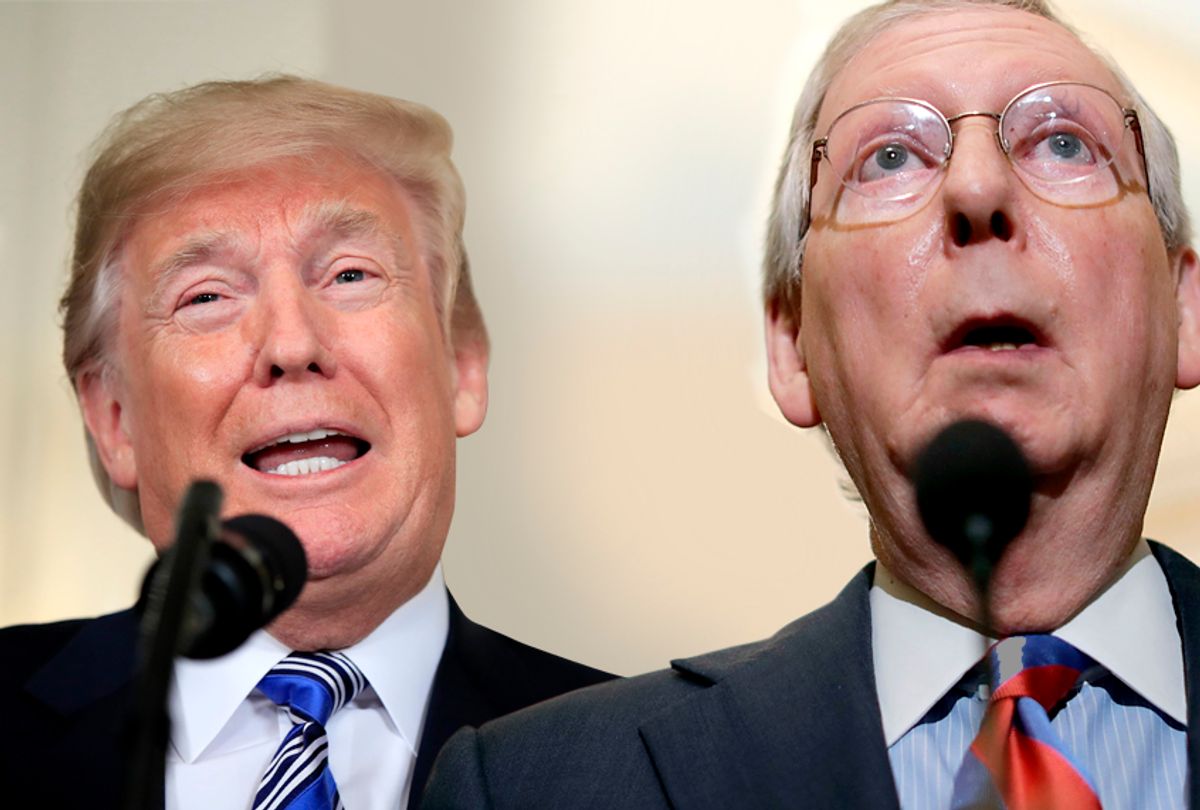President Donald Trump and a radicalized Republican Party are destroying political norms — and risking long-term destruction of democracy, according to a pair of Harvard University political scientists.
Steven Levitsky and Daniel Ziblatt, authors of the new book "How Democracies Die," said the GOP has radicalized as the electorate grew larger and more diverse — which has left Republicans with a shrinking base that once enjoyed unquestioned dominance.
“The parties are now divided by race and religion,” the authors said in a promotional interview. “This is a big deal. Partisan differences aren’t focused just on taxes and spending anymore; they now encompass our identities and culture. And, crucially, the Republican Party has become the political home for white Protestants — a majority ethnic group in decline. This is the underlying source of the party’s radicalization.”
Those GOP voters have become angrier and more anxious as their influence has diminished, the authors said, and that has pushed their party toward the type of anti-democratic extremism seen in North Carolina, for example.
“The state GOP has sought to avoid defeat ‘by any means necessary,’ including radical gerrymandering, voter suppression, court packing, and, after losing the governorship in 2016, a last-minute legislative session that passed a series of measures to weaken incoming governor Roy Cooper’s power,” said Levitsky and Ziblatt. “These sorts of institutional shenanigans seem to have become a permanent feature of North Carolina’s politics, which at times makes it look a bit like Ecuador, Peru, or other fragile democracies. We fear that this may be the direction in which national politics is heading.”
House Republicans adopted a “win at any cost” mentality under former House speaker Newt Gingrich in the mid-1990s, and the authors said that has prevented them from checking Trump’s authoritarian instincts.
“In violating so many norms so frequently and so egregiously, he has expanded the bounds of acceptable political behavior,” Levitsky and Ziblatt said. “Behavior that was once considered unthinkable in American politics is becoming commonplace. Perhaps even more important, Trump is attacking fundamental norms: ones that directly affect our democracy, such as respecting the press, respecting election results, and not lying to the public.”
Those violations can become contagious, the authors warned, not just within Trump’s own party but among his opponents, as well.
“When a politician receives applause when threatening the press, other like-minded politicians are encouraged to do the same,” Levitsky and Ziblatt said. “In this way, a political system, sustained by shared standards of what is acceptable, can begin to deteriorate.”
“But this is not the end of it,” they added. “As language becomes more extreme, the opponents of demagogues grow frightened and feel compelled to respond in kind. A tit-for-tat extremism can be unleashed. The results are not good.”



Shares